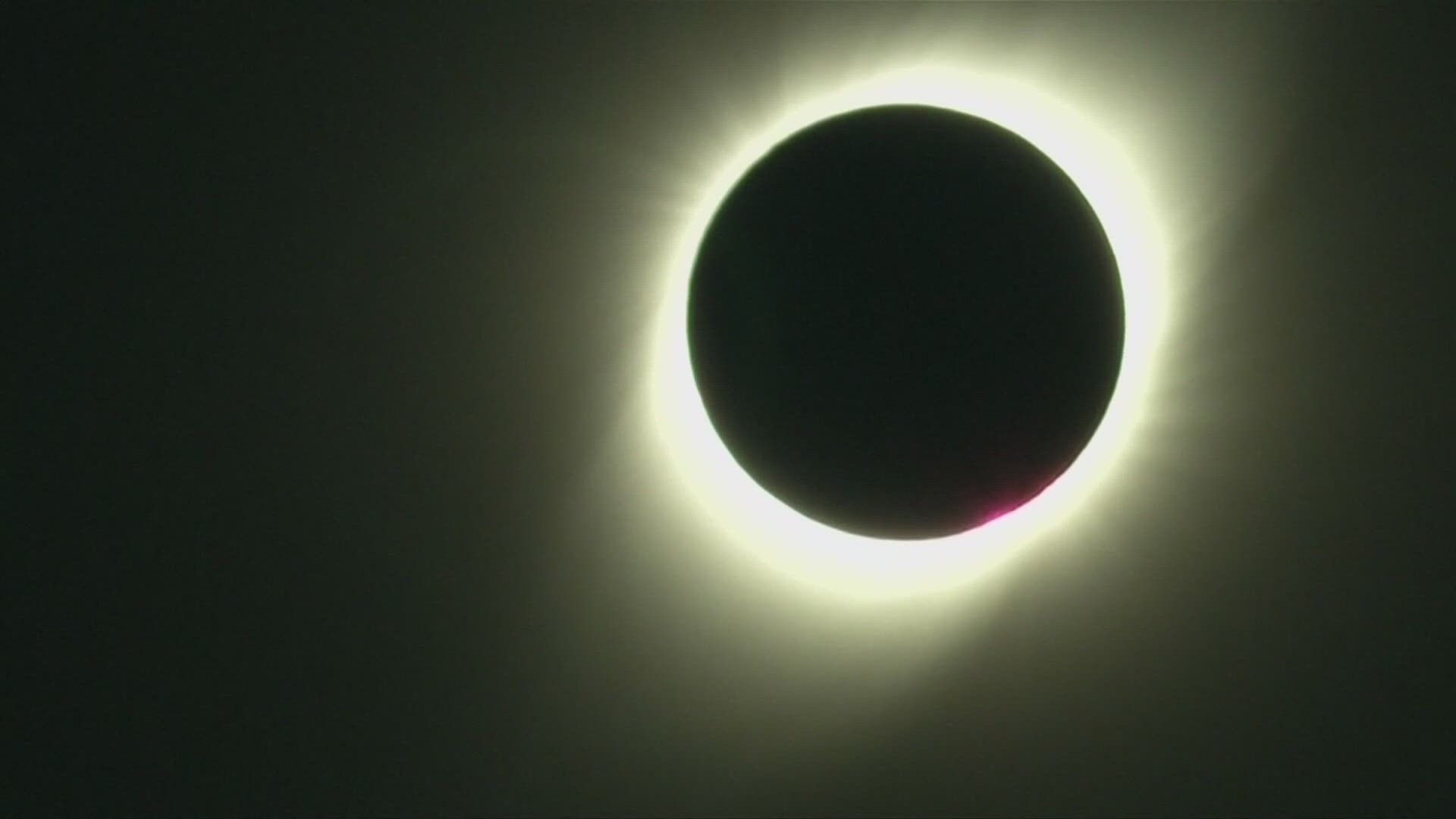ORONO, Maine — Ahead of April’s solar eclipse, astronomers at the University of Maine are enlisting the help of citizen scientists to understand more about the sun’s atmosphere, also called the corona, which is only visible during a total eclipse.
The telescopes will be placed at three locations along the path of totality in Maine; there will be more than 30 other such stations throughout the country.
Shawn Laatsch, director of the Versant Power Astronomy Center at the university, is leading the citizen scientists in Maine. He hopes the pictures taken of the corona will offer new insights into solar weather, which can impact the functions of satellites and power grids.
"Space weather… that affects our whole planet and affects some of the things we’re doing in terms of our civilization," Laatsch said Wednesday.
The project depends on amateur enthusiasts to capture the proper data. "I’m a multi-generational eclipse chaser, as it were," Pedro Vazquez, a citizen scientist being trained by Laatsch’s team, said.
Vazquez realizes the gravity of his role.
"If you don’t get nervous every time that you’re in charge of a group that's responsible for something like this, you’re really just not paying attention," Vazquez said.
While professional scientists could have done the work that these weekend warriors are about to embark on, Nikita Saini, who oversees the training of the citizen crews, says there is a benefit to the current arrangement.
"Astronomy, like, excites people, but it’s not that accessible. I think citizen scientist projects like these make that a little bit possible."

